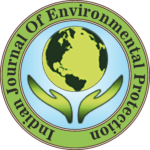IJEP 39(2): 115-120 : Vol. 39 Issue. 2 (February 2019)
Keerthana R. Shenoi and K.S. Shoba Jasmin
Saveetha Institute of Medical and Technical Sciences, Saveetha School of Law, Chennai – 600 077
Abstract
Biomedical waste though forms a small part of the total municipal waste generated, needs proper handling and management as it is capable of affecting the human as well as environment. It is produced as a result of the biological and medical activities involved in the diagnosis, prevention or treatment of diseases in healthcare facilities, also known as medical waste or clinical waste. 80% of these wastes are non-infectious while 20% is infectious and capable of affecting the human health. Hence, the Biomedical Waste Handling and Management Rules, 1998 was enacted by the Indian Government and amended to cater the emerging problems related to biomedical waste management. At present Biomedical Waste Management (BWM) Rules, 2016 is complied with which divides the waste into four broad categories based on colour coding, thereby improving the segregation of biomedical waste generated. This paper aims to analyze how far biomedical waste has been managed by hospitals and clinics in Chennai city as per the prescribed rules of BWM Rules, 2016. The study found that clinics have not given enough concern to biomedical waste management practices as per the BWM Rules, 2016. Although there are certain violations of the rules, there has been a significant difference after the enactment of the BWM Rules, 2016 on comparing with previous years.
Keywords
Biomedical waste, Management, Segregation, Labeling, Disposal
